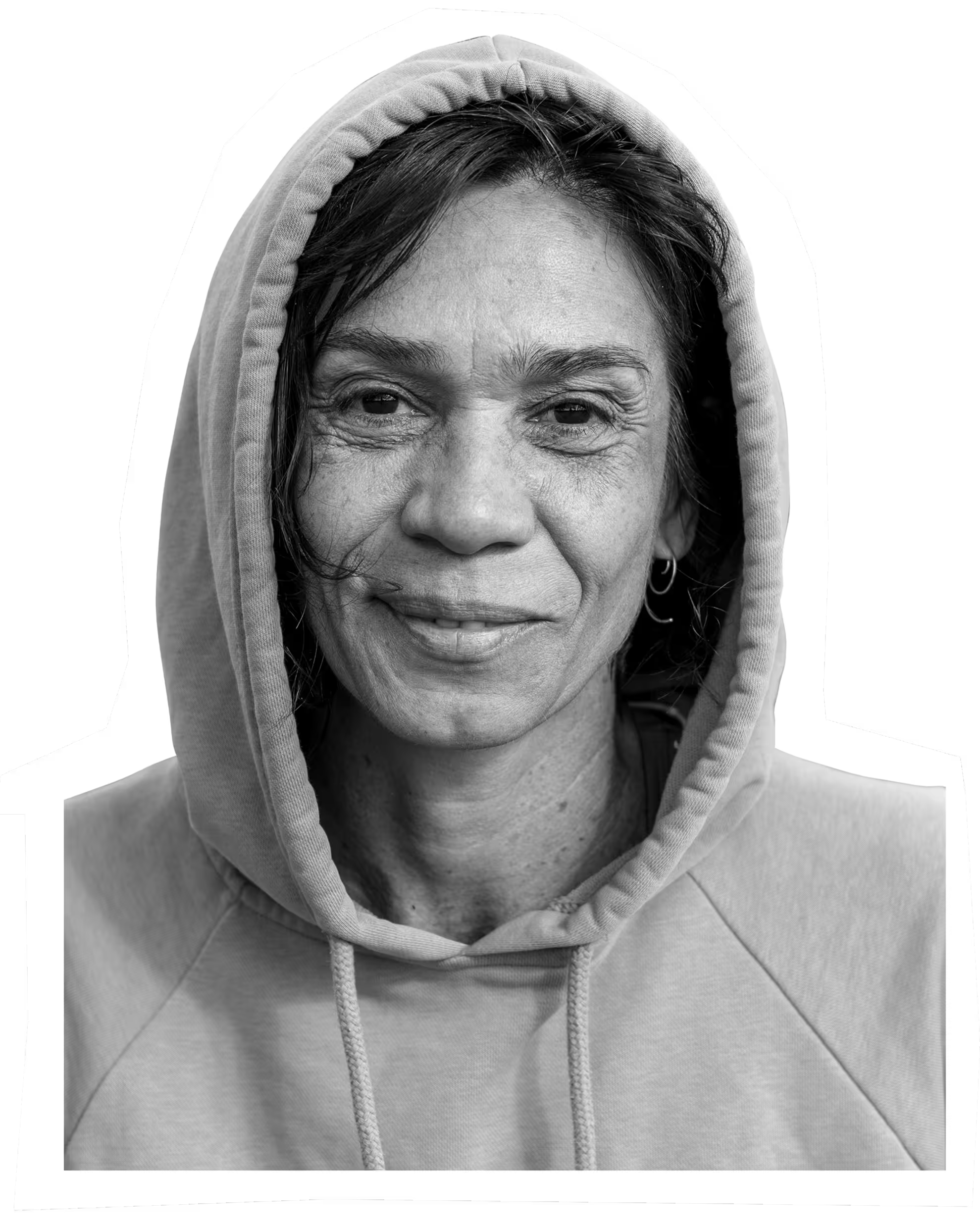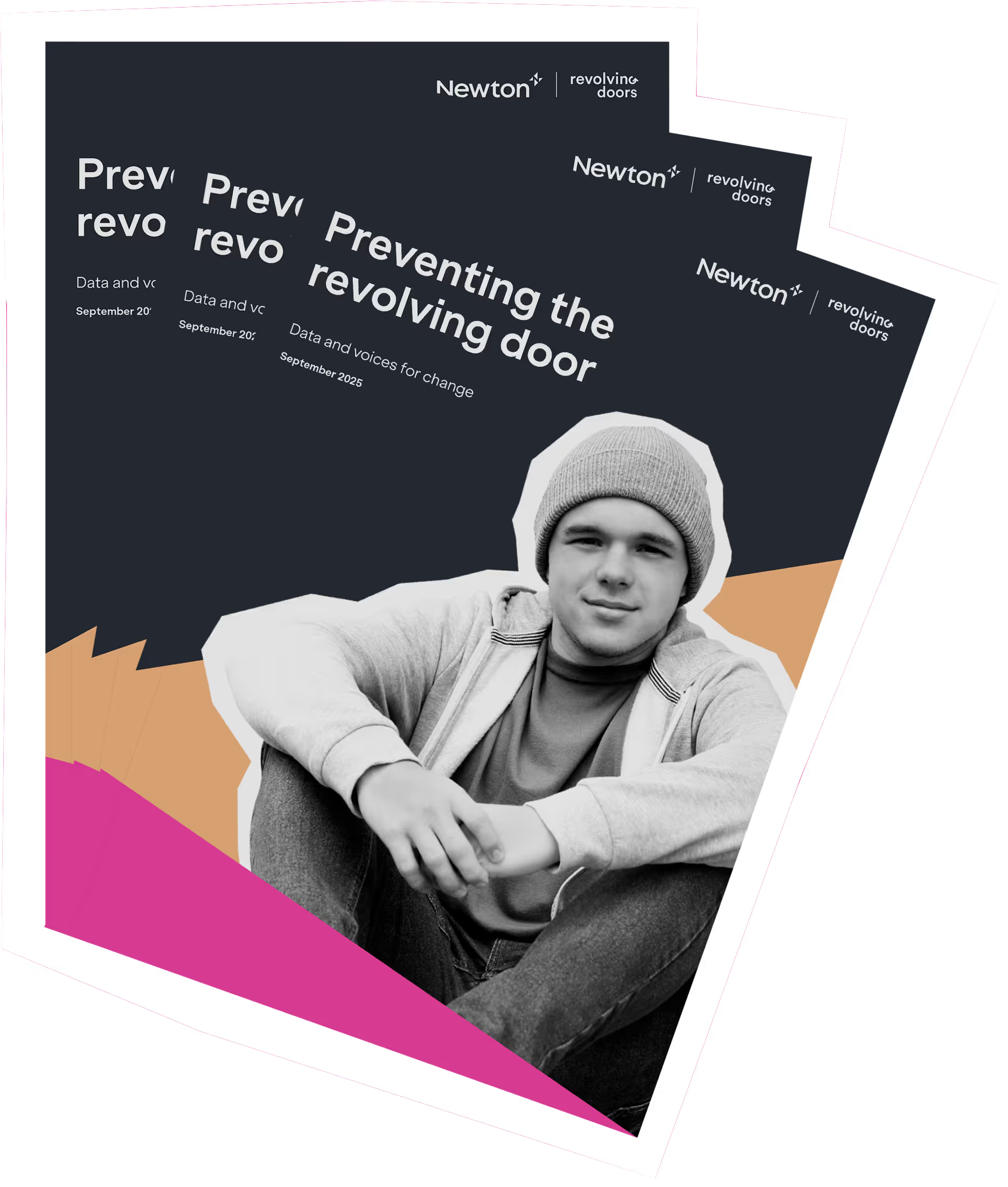How it worked
Revolving Doors led and commissioned the research, bringing deep qualitative insight and lived experience to the programme. Partnering with Newton and Xantura, they used cutting-edge data analytics to integrate previously disconnected datasets, creating a single, clearer view of the revolving door cohort, including who they are, what their lives look like, and how their interactions with services could be transformed.
Revolving Doors is a national charity that champions long-term solutions for justice reform that support people to reach their potential in a happier, healthier and fairer society by amplifying the voices and expertise of people who have experienced cycles of crisis and crime.
They focus on the ‘revolving door’ group of people, those who have repeat contact with the justice system whose behaviours are driven by unmet health and social needs, trauma, poverty and discrimination. This includes combinations of problematic substance use, homelessness, mental ill health and domestic abuse.
Revolving Doors place lived experience at the heart of change. They empower their ‘members’ – around 60 people at any one time with current or recent personal experience of the system – to use their experience to influence policy and make services work better for the people using them.
Newton is a strategic delivery partner to public and private sector organisations. They work alongside central government and their delivery partners to turn policy and strategy into action and outcomes, building services that meet the needs of the people and communities that use them.
Newton puts people and lived experience at the centre of its work. Through deep collaboration with service users, frontline professionals, and system leaders, they ensure that change is grounded in real-world insight and delivers meaningful impact. Newton’s approach combines rigorous data analysis with human-centred design to create solutions that are both evidence-based and empathetic.
Newton’s approach has delivered significant outcomes for central government, local authorities, and health systems, including driving billions of savings for the public purse whilst delivering critical operational outcomes, such as more hospital beds, more effective health and social care services, and national-level transformation in immigration, defence, and justice.
Xantura is a data and technology company, and is part of the Newton group. They empower public services to make smarter, earlier decisions that improve lives and reduce harm by enabling ethical, secure, and intelligent data sharing across agencies, helping professionals see the full picture of the people and communities they support.
Xantura focuses on delivering prevention through the better use of data – supporting those at risk of poor outcomes due to complex, overlapping needs such as homelessness, domestic abuse, substance misuse, and mental ill health. Their work helps local authorities and partners shift from reactive to proactive services, using data to intervene earlier and more effectively.
Xantura’s flagship platform, OneView, brings together millions of data points from across public services to generate timely, actionable intelligence. This enables frontline professionals to design and deliver interventions that are tailored, targeted, and transformative.
Acknowledgements
This report was made possible thanks to the generosity, expertise, and collaboration of:
The 20 Revolving Doors members who shared their life stories with honesty and courage, shaping the insights and findings.
Including the Ministry of Justice, Home Office, Department for Education, and Ministry for Housing, Communities and Local Government, whose guidance ensured the research produced genuinely new insights
For their commitment to prioritising this cohort.
For granting access to data that enabled unprecedented detail on offending patterns and unmet needs.
For funding the qualitative research that underpins this report.



Reflections from a Revolving Doors member
Being part of this project felt real, hard, honest and important. Sharing our stories isn’t about us - it’s about making sure others don’t go through the same cycles we did. It’s about using what happened to us to help the system change.
We need to pay attention to the revolving door and those in it, because these are real people stuck in a cycle that damages them and everyone around them. If we don’t pay attention, nothing changes. The system will keep on failing people who need support the most.
Useful links

Tackling persistent crime by addressing the root causes, not just the symptoms.

The revolving door of crisis and crime is one of the most persistent challenges facing public services.

This research draws on in-depth lived-experience interviews and powerful cross-service data analysis to demonstrate how unmet need and miss opportunities create a revolving door effect.
Read more about the research process, key findings, and expert recommendations.


